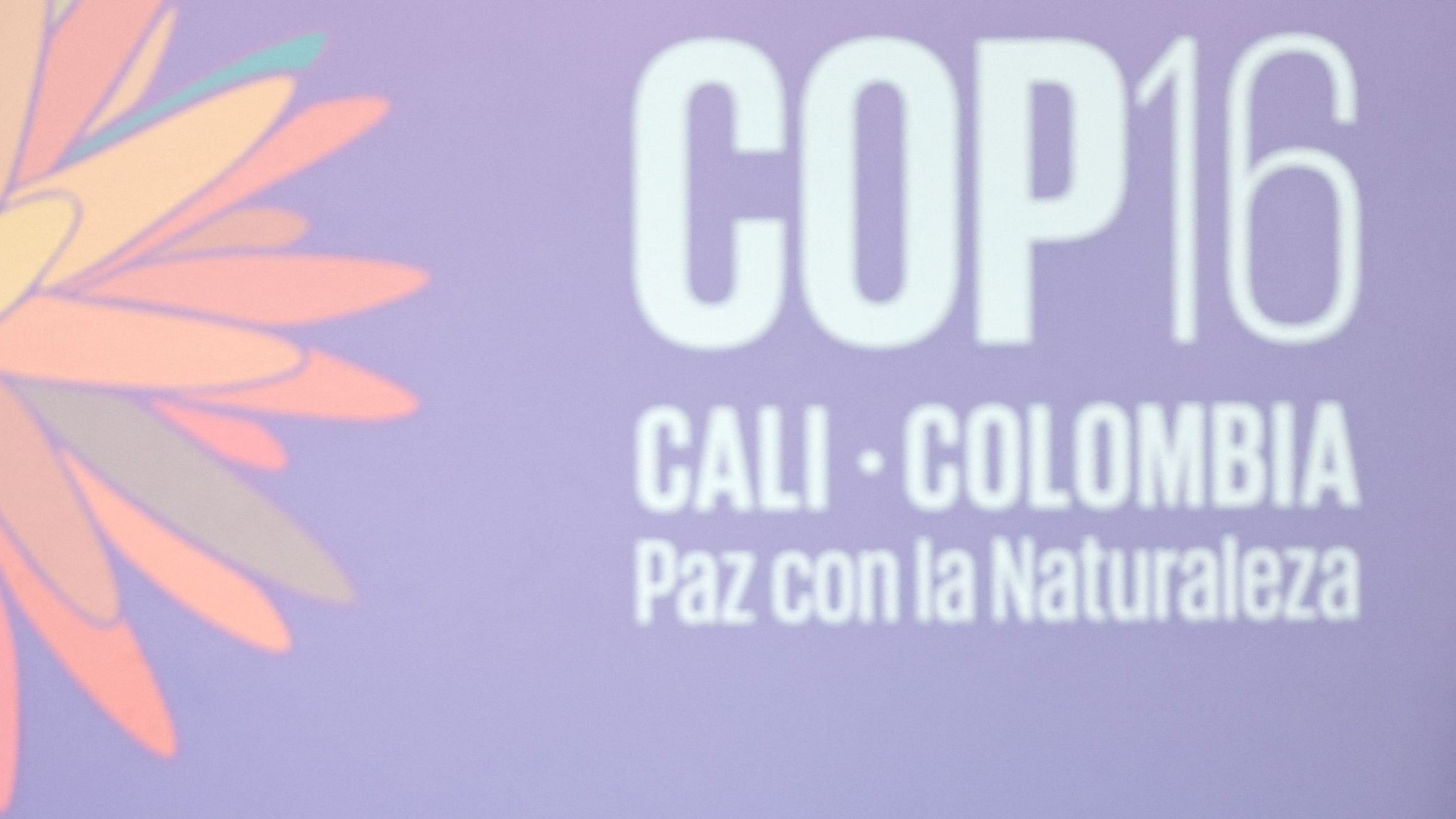
The COP16 logo.
Credit: Reuters Photo
Bengaluru: Two years after ratifying the Kunming Montreal Biodiversity Framework, India finalised its text on 23 national targets to conserve biodiversity, with its stance on biosafety and biotechnology termed failing to convince conservationists back home about the government's commitment to protect biodiversity.
Over the last two months, India has submitted to Convention on Biological Diversity (CBD) its targets to protect, conserve and restore biodiversity facing threats from various fronts, from over exploitation of resources to climate change. From inclusive and integrated approach to land and sea use to gender equality in decision making 23 National Biodiversity Targets (NBT) as part of a global effort to safeguard biodiversity by 2030.
However, as officials made commitments to protect agrobiodiversity in the National Biodiversity Strategy and Action Plan submitted to CBD at Cali, Columbia, on Thursday, contradictions in one of the 23 key targets was not lost on those on the ground fighting against the recent moves to push genetically modified (GM) crops.
In the outline of the NBT 17, the Centre at first committed to strengthen capacity and implement measures for biosafety, "including respecting, preserving and maintaining the knowledge, innovations and practices of local communities". However, the second point in the outline says the government will "promote and support biotechnical research and develop capacity for its safe use and applications" in the conservation of biodiversity.
In the explanatory note, the government said the Genetic Engineering Appraisal Committee (GEAC) will enforce biosafety, including the release of genetically engineered crops and and use/import/export of hazardous microorganisms.
Conservationists and experts, however, noted that the GEAC's failure to do the job, which forced activists to approach the Supreme Court against the GM mustard, shows that India lacks seriousness in its commitments. Some feared that the government continued its 'business as usual' approach despite the apex court's split verdict calling for public consultations.
Researcher and public policy expert Narasimha Reddy Donthi, said there was a huge gap between what is committed at the CBD and its execution in India. "Here, the government of India maintains complete silence. No discussions are held on the CBD commitments, before or after making them. Even the Parliament is not taken into confidence. Genetic resources conservation, access and benefit sharing is a concern in India because of governments' complicity in promoting multi national companies to commodify Indian biological resources in the name of research on health, food and animals," he said.
Kavita Kuruganti, founder convenor of Alliance for Sustainable and Holistic Agriculture (ASHA), noted that going by the government's actions in the last 30 years, India's two main commitments in NBT 17 are "contradictory to each other" in the context of modern biotechnology including gene editing. "In fact, it is ironic that India is talking about increasing capacity for implementing biosafety measures when it has deregulated two major classes of genome-edited organisms," she said.
Kavita said the government's move to list as a national indicator the 'number of living modified organisms undergoing risk assessment and risk management' was a major threat. "It is about the government regulators positioning themselves as a clearing house of approvals," she added.
B K Singh, who retired as Karnataka's principal chief conservator of forest (head of forest force), said the administration was not equipped to handle negative fallouts of GM crops. "There is hardly any government, which has fully secured biodiversity as seen by the number of species getting extinct or moving to the endangered list," he said, adding that governments need to consider such limitations and take into account the additional challenges posed by Climate Change while forming biosafety policies.
Donthi said consultation with the public and experts is a must before the government takes decisions which have far reaching consequences. "The CBD and the global framework need discussion within India. Recently, the government has diluted forest conservation and biodiversity laws, which will have a negative impact on our commitments," he said.